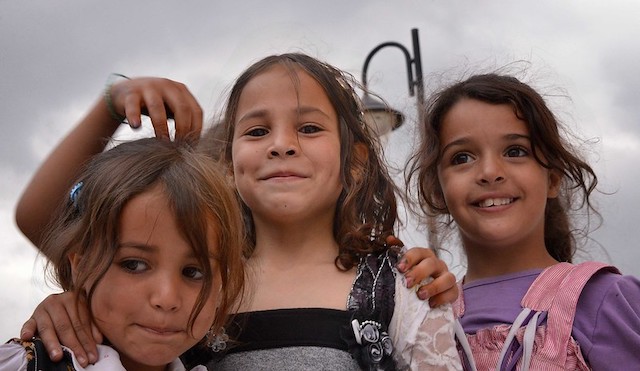Female Genital Mutilation in the Middle East
 Female genital mutilation, or FGM, is a practice that is most common in cultures with strict patriarchial structures. Many people believe that the ritual is only performed in Africa, but in actuality, thousands of girls undergo female genital mutilation in the Middle East every year. Though many claim the procedure is done for religious reasons, researchers have found that it predates Christianity and Islam. In fact, female Egyptian mummies have been found with FGM. This is a deep-rooted and harmful practice that still continues today. The United Nations formally recognizes FGM as a form of torture that oppresses women.
Female genital mutilation, or FGM, is a practice that is most common in cultures with strict patriarchial structures. Many people believe that the ritual is only performed in Africa, but in actuality, thousands of girls undergo female genital mutilation in the Middle East every year. Though many claim the procedure is done for religious reasons, researchers have found that it predates Christianity and Islam. In fact, female Egyptian mummies have been found with FGM. This is a deep-rooted and harmful practice that still continues today. The United Nations formally recognizes FGM as a form of torture that oppresses women.
Female Genital Mutilation in the Middle East
-
Where does FGM occur? FGM was previously believed to only occur in Africa, however, recent advocacy efforts revealed that the practice extends to many other countries, especially in the Middle East. In the Middle East, FGM is mostly concentrated in Southern Jordan, Iraq and Northern Saudi Arabia. There have also been cases of FGM in Qatar, Syria and the United Arab Emirates. The practice most often occurs in small ethnic enclaves where the ritual is considered tradition. It is important to recognize that FGM occurs in many places outside of Africa in order to stop the practice completely.
-
Who is most impacted by FGM? In Egypt, about 87% of girls are affected by FGM. According to a UNICEF study from 2013, many of them are traumatized by the experience before the age of 14. In many other Middle Eastern and African countries, the majority of girls are cut before the age of 15. Current rates are certainly improving, but it is likely that one in three girls in Egypt, Iraq, Yemen, Sudan and Djibouti will experience FGM by 2030. In the United Arab Emirates, 34% of the women surveyed said they had experienced FGM. Twenty percent of women surveyed in Saudi Arabia are subject to the practice.
-
What are the impacts of FGM? This practice has severe short-term and long-term negative impacts on women who undergo the procedure. Young girls are held and tied down while a local village cutter, usually not a licensed medical professional, performs the procedure with little or no anesthetic. In short, FGM can cause death, infections, hemorrhage and severe pain. In Egypt, there was a public outcry after a doctor performed FGM on a 12-year-old girl who then bled to death. The doctor was arrested, but the practice is extremely traumatizing and can cause severe psychological damage in the long run. It can lead to chronic infections and trouble with childbirth. Girls who undergo FGM are also more likely to drop out of school and become child brides.
-
Steps are being made to reduce FGM. As information becomes more readily available, more and more people are speaking out against the procedure. It is finally being recognized as a violation of human rights. Though FGM is most common in Egypt, the country has made the most progress in the past 30 years, according to UNICEF. FGM is completely banned in Egypt and doctors can go to jail if they perform it. It has also been banned in Sudan. In Yemen, FGM can no longer be performed in medical facilities, but it has not been banned at home.
-
FGM rates are decreasing. As can be inferred, many women are now against the practice of FGM. However, some more traditional cultures still advocate for the circumcision of women. In Egypt, Sudan, Yemen, Iraq and Djibouti, 70% of all women were affected by FGM 30 years ago. Today, half of all girls in those five countries undergo FGM. Although FGM is still allowed in Iraq, it is illegal in Iraqi Kurdistan. Many people against the practice explain that law is not enough and there needs to be stricter enforcement to ensure the end of female circumcision.
-
A call to action: According to UNICEF, there has been a massive movement to end FGM in the last 25 years. There are many organizations, like the Orchid Project, that campaign against the traditional cutting in the Middle East and Asia. In 2013, UNICEF formally recognized that FGM is a problem that extends to areas outside of Africa. In addition, the United Nations celebrates International End FGM day every February 6, which is a huge step forward in spreading awareness. The U.N. also made it a goal to stop FGM in all countries by 2030.
– Karin Filipova
Photo: Flickr
